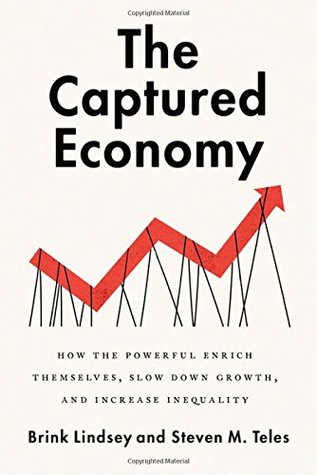The Captured Economy is a basically about how rent-creating policies in a variety of fields are leading to an increase in inequality in America. If you don't know what "rent" is, it's basically "the excess payment made to any factor of production (land, labor, or capital) due to scarcity. It's basically the extra money one earns for holding on to a certain factor of production. The book looks at various sectors and argues that there are policies that lead to higher rents, which in turn benefit the people with more money and lead to growing inequality. The sectors are: finance, intellectual property, occupational licensing, and land use.
Strangely enough, the first thing that struck me as very true when I read the book wasn't the rent-seeking part, but this section in the beginning:
"When people feel economically insecure, they grow more defensive, less open and generous, and more suspicious of 'the Other.' When life seems like a zero-sum struggle, gains by other groups are interpreted as losses by one's own group."I don't think that this is the sole cause of xenophobia, but I do agree that it plays an important role, seeing as many complaints about foreigners tend to come with complaints about how they're 'stealing our jobs'.
The book makes a pretty good case that some pieces of regulation are leading to growing inequality. But, I'm not too sure where is the line to be drawn when it comes to regulation. In the podcast, they mentioned teeth-whitening as an example of excessive occupational licensing. While it may be simpler than other dental procedures, it's not without its risks - in Singapore, some home whitening kits were found to have excessively high amounts of chemicals that would result in overly-sensitive teeth. While excessive regulation is bad, no regulation seems to have the potential to harm consumers as well (especially consumers who don't understand how much of XYZ is safe and may underestimate its effect).
Overall, I thought this was an interesting and thoughtful book. The explanation of rent at the start was clear and the arguments were easy to follow. While the book focuses only on American economics, the theory behind the arguments can be applied to any economy and made me think about how much regulation is necessary in different industries.


No comments :
Post a Comment
I really do appreciate all comments, and I'll try my best to reply within 24 hours!
^_^